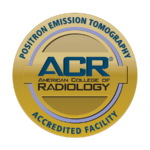Advanced Chemotherapy Treatments
We currently offer two forms of advanced chemotherapy
Molecularly Targeted Therapy
What is molecularly targeted therapy?
Cancer cells each carry specialized proteins or molecules that signal for the growth and division of the cells. Molecularly targeted agents are designed to block these specific molecules and prevent the messages telling the cell to grow or divide from being transmitted. This inhibits proliferation and replication of the cancer cells, ultimately resulting in their death. In most cases, each molecularly targeted agent is effective against a single protein or molecule. Specialized testing of the cancer cells helps physicians determine whether a particular cancer is likely to respond to the targeted agent based on the presence or absence of the target protein in or on the cells. Molecularly targeted agents can be used alone or in combination with cytotoxic chemotherapies.
What are the benefits of molecularly targeted therapy?
Unlike cytotoxic chemotherapy agents which are indiscriminate and kill all rapidly dividing cells including some healthy cells, molecularly targeted agents selectively kill only those cells carrying the target protein. Consequently, they effectively treat the cancer with significantly fewer side effects.
Why aren’t all cancers treated with molecularly targeted therapy?
Molecularly targeted therapies are relatively new in cancer treatment, and not all cancers carry a protein that is the target of the currently available drugs. Sophisticated testing of each patient’s cancer cells help the physician determine whether molecularly targeted therapy is an option for a particular patient.
Hormone or Endocrine Therapy
What is hormone therapy?
Hormone therapy represents another type of systemic cancer treatment. Hormones are chemicals that the body produces naturally such as testosterone, estrogen and progesterone. These chemicals signal for certain actions such as growth and division of different cells in the body.
How does hormone therapy work?
For a hormone to exert its effects on a cell, the cell must carry a specific protein or receptor on its surface. When that particular hormone is circulating near the receptor, it will bind to the receptor, sending a signal to the cell. In many cases, the presence of the hormones and the subsequent binding to the hormone receptors stimulates the cancer cells to grow. In general, hormone therapy works either to 1) lower the amount of hormone available to bind to the receptors or 2) prevent the hormones from acting on the receptor, thereby minimizing the growth and spread of the cancer.
For what types of cancer is hormone therapy generally used?
Hormone therapy is frequently used in the treatment of prostate and breast cancers.



